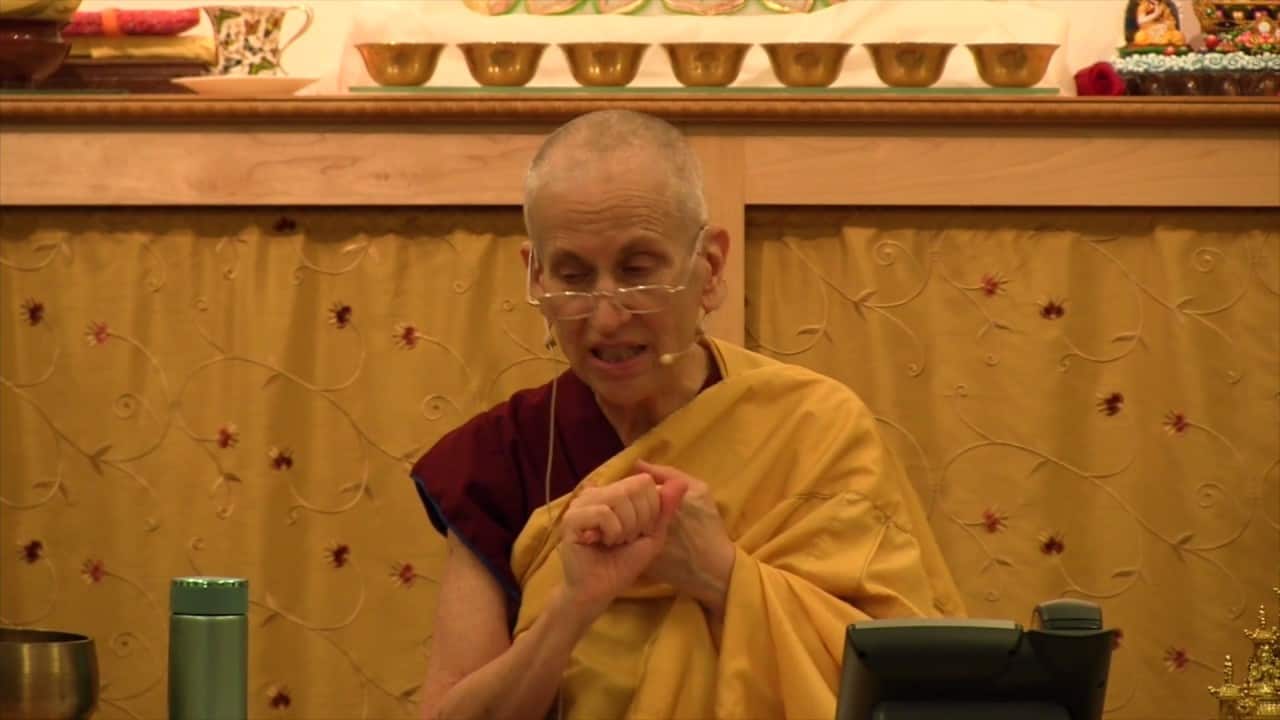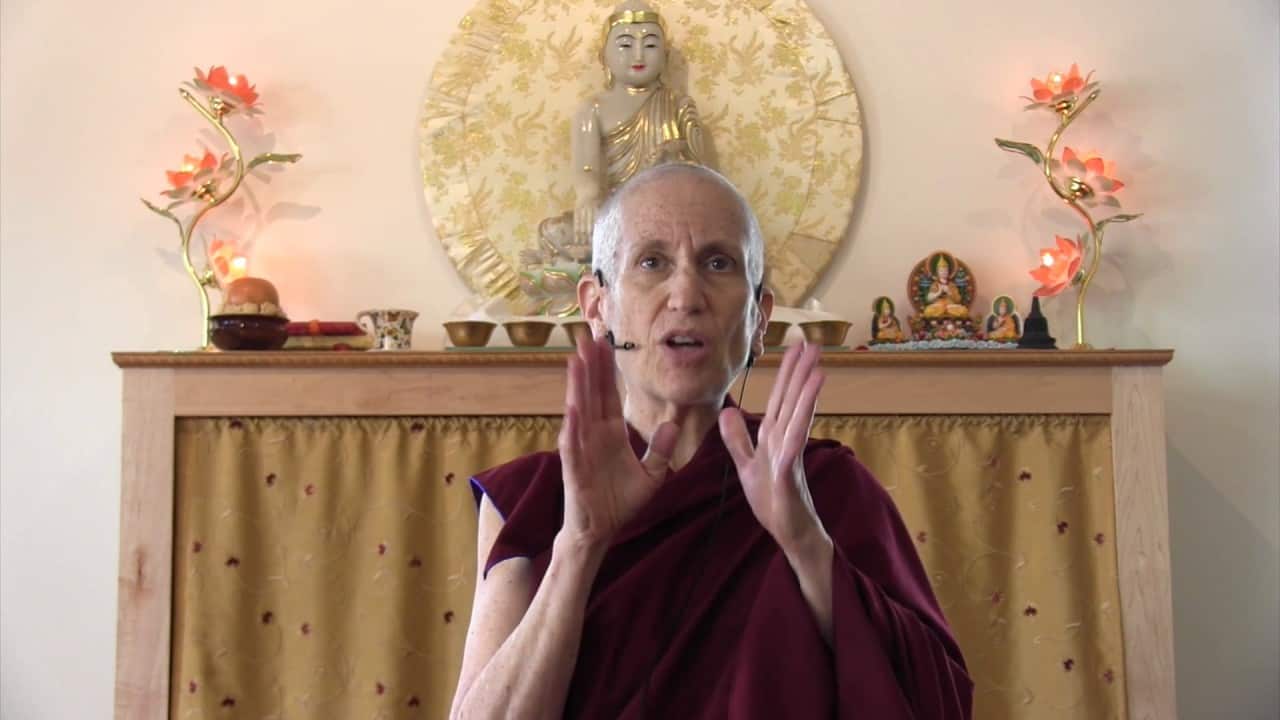Taking on the suffering of others
The text now turns to relying on the method for happiness in future lives. Part of a series of teachings on the Gomchen Lamrim by Gomchen Ngawang Drakpa. Visit Gomchen Lamrim Study Guide for a full list of contemplation points for the series.
- The importance of preparing the mind for the taking-and-giving meditation by contemplating the methods of generating bodhicitta
- The practice of taking the dukkha, afflictive obscurations, and cognitive obscurations of sentient beings
- Using the suffering of others to destroy the self-centered thought
Gomchen Lamrim 78: Taking on the suffering of others (download)
Contemplation points
While doing the “taking and giving” meditation below, consider some of the points Venerable Chodron taught this week:
- It is vital to do one of the two meditations to generate bodhicitta before doing the taking and giving meditation. Why?
- What kind of resistance comes up for you when doing this meditation? What can you do to start to overcome it?
- Try, when you experience some kind of pain, to think “may this suffice for the pain of all beings who are going through this.” What does it do for your mind?
- Also, when you experience some kind of pain or discomfort, consider the sufferings of the lower realms (where beings experience the dukkha and anger, craving, and confusion without relief). Does that help make your experience seem not so bad? Does it help you work through it?
Taking and giving meditation
- Start with yourself.
- Imagine the dukkha you might experience tomorrow (dukkha of pain, dukkha of change, and the pervasive dukkha of conditioning).
- Once you have a feel for it, take it on your present self so that the person you are tomorrow doesn’t have to experience it. You can imagine the dukkha leaving your future self in the form of pollution or black light, or whatever is useful to you.
- As you take on the dukkha in the form of pollution/black light, imagine it strikes at the self-centeredness at your own heart, like a thunderbolt, completely demolishing it (self-centeredness can appear as a black lump or dirt, etc).
- Now think about your future self next month. You’re future self as an old person and do the same exercise…
- Then consider the dukkha of those you are close to using the same points as above.
- Next, consider the dukkha of those towards whom you feel neutral.
- Next, the dukkha of those you don’t like or trust.
- Finally, consider the dukkha of beings in all the different realms (hell, preta, animal, human, demi god, and god).
- Having destroyed your own self-centeredness, you have a nice open space at your heart. From there, with love, imagine transforming, multiplying, and giving your body, possessions, and merit to these beings. Imagine them being satisfied and happy. Think that they have all the circumstances conducive to attaining awakening. Rejoice that you’ve been able to bring this about.
- Conclusion: Feel you are strong enough to take on others’ dukkha and give them your happiness. Rejoice that you can imagine doing this, practice it as you notice and experience suffering in your daily life, and offer prayers of aspiration to be able to actually do this.
Venerable Thubten Chodron
Venerable Chodron emphasizes the practical application of Buddha’s teachings in our daily lives and is especially skilled at explaining them in ways easily understood and practiced by Westerners. She is well known for her warm, humorous, and lucid teachings. She was ordained as a Buddhist nun in 1977 by Kyabje Ling Rinpoche in Dharamsala, India, and in 1986 she received bhikshuni (full) ordination in Taiwan. Read her full bio.


